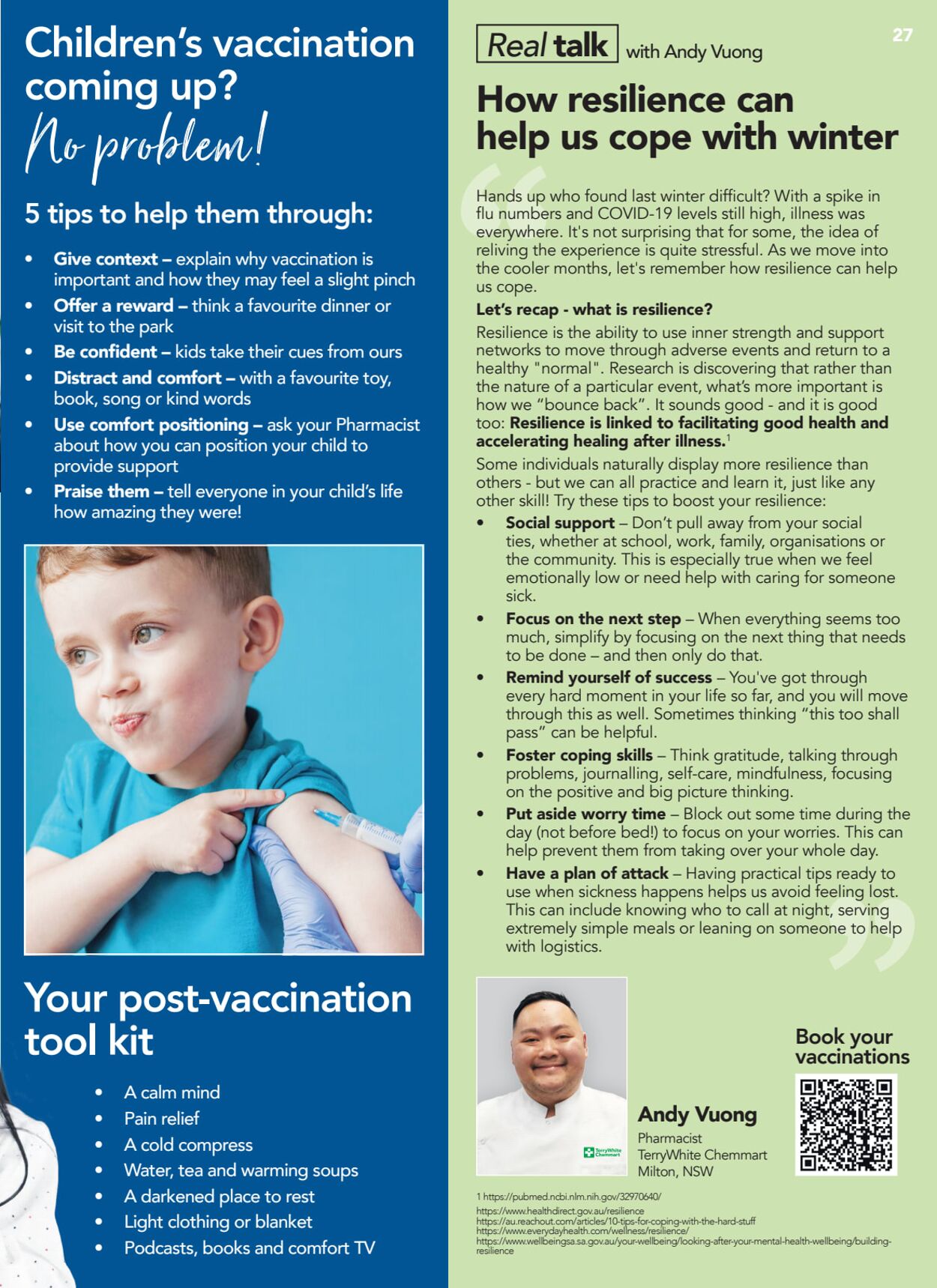













Products in this catalogue
~ with Andy Vuong How resilience can help us cope with winter Hands up who found last winter difficult? With a spike in flu numbers and COVID-19 levels still high, illness was everywhere. It's not surprising that for some, the idea of reliving the experience is quite stressful. As we move into the cooler months, let's remember how resilience can help us cope. Let's recap - what is resilience? Resilience is the ability to use inner strength and support networks to move through adverse events and return to a healthy "normal". Research is discovering that rather than the nature of a particular event, what's more important is how we “bounce back”. It sounds good - and it is good too: Resilience is linked to facilitating good health and accelerating healing after illness.’ Some individuals naturally display more resilience than others - but we can all practice and learn it, just like any other skill! Try these tips to boost your resilience: © Social support — Don't pull away from your social ties, whether at school, work, family, organisations or the community. This is especially true when we feel emotionally low or need help with caring for someone sick. ¢ Focus on the next step — When everything seems too much, simplify by focusing on the next thing that needs to be done — and then only do that. ¢ Remind yourself of success — You've got through every hard moment in your life so far, and you will move through this as well. Sometimes thinking “this too shall pass” can be helpful. ¢ Foster coping skills — Think gratitude, talking through problems, journalling, self-care, mindfulness, focusing on the positive and big picture thinking. ¢ Put aside worry time — Block out some time during the day (not before bed!) to focus on your worries. This can help prevent them from taking over your whole day. * Have a plan of attack — Having practical tips ready to use when sickness happens helps us avoid feeling lost. This can include knowing who to call at night, serving extremely simple meals or leaning on someone to help with logistics. Book your vaccinations @) Andy Vuong Pharmacist Ge TerryWhite Chemmart Milton, NSW: 1 https://pubmed.ncbinim nih gov/32970640/ https//wmhealthdirect gov au/resilience htps//aureachout com/ aries O-tps for coping withthe hard tf https:/Awweverydayhealth com/wellness/restience/ tps’ welibeingsa.sa.govu/yourwellbeing/looking after yourmental-heath-wellbeing/bulding- reslience
| Name | Details |
|---|